Guide
The Afro-Brazilian Experience: Salvador’s Rich Cultural Heritage
The lively pulse of Afro-Brazilian culture sweeps one away as you stroll through Salvador’s neighbourhoods. This city is where legends abound around every corner, where the beat of ancient drums unites modernity and tradition. This article will transport you through Salvador’s diverse cultural fabric and show how Brazilian customs are linked to African ancestry. As you delve into the colourful streets and vibrant marketplaces, you’ll discover how each facet of Salvador—from its cuisine to its street art—echoes the enduring influence of African heritage, creating a rich mosaic of history and contemporary life.
The Roots Run Deep
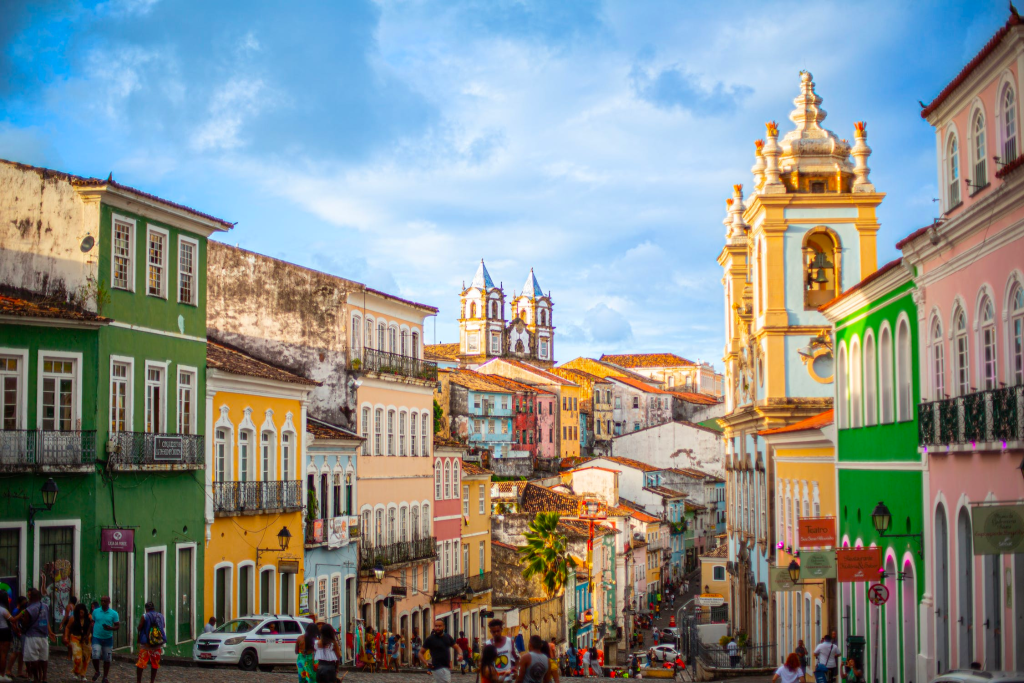
Picture Salvador as an ancient tree, its roots deeply embedded in the historical landscape, stretching centuries. This city’s rich cultural heritage, infused with songs, rituals, and spiritual beliefs brought by Africans during the era of slavery, has seamlessly merged with local Brazilian customs. This blend across generations has given birth to a distinctive cultural identity. Thus, Salvador thrums with a unique Afro-Brazilian rhythm, a heartbeat felt in every street corner, every festivity, and within the spirit of its people. This rhythm transcends mere music; it is a story of resilience and cultural integration that defines the essence of Salvador. Before embarking on this beautiful musical journey, according to iVisa.com, you should check all the necessary entry requirements. Once all travel details are sorted, vibrant beats of the Olodum drums narrate a history of convergence of an ever-evolving, rich cultural tapestry.
A Mosaic of Faith
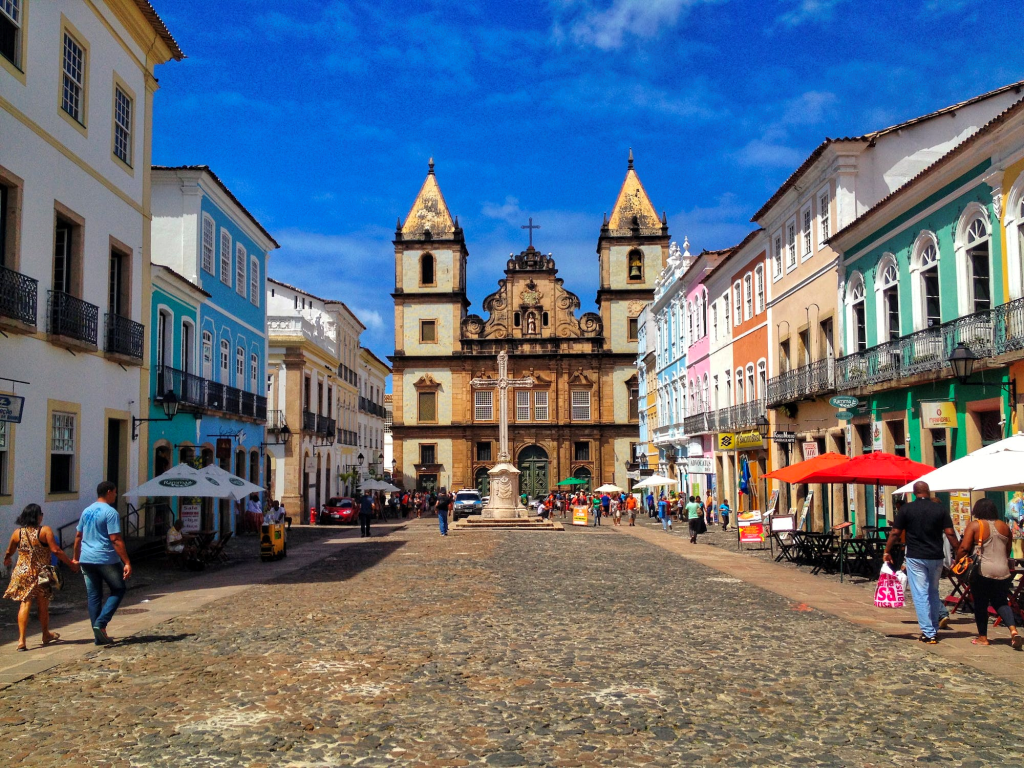
In Salvador, the realm of religion transcends mere faith; it unfurls as a vibrant mosaic of diverse beliefs and practices. The city is imbued with a unique spiritual essence, where the rich traditions of African Candomblé intertwine harmoniously with the rituals of Catholicism. The adoration of African deities, known as orixás and the respect for saints find a home in the hearts of the devoted in this case. Because of the city’s history and its residents’ capacity to unite different spiritual pathways into a single, inclusive belief system, a rich tapestry of religious integration is created by blending faiths. With their African roots and adopted Catholic customs, Salvador’s people have a solid spiritual bond reflected in the rich, multifaceted nature of religious festivals and festivities.
The Rhythmic Heartbeat
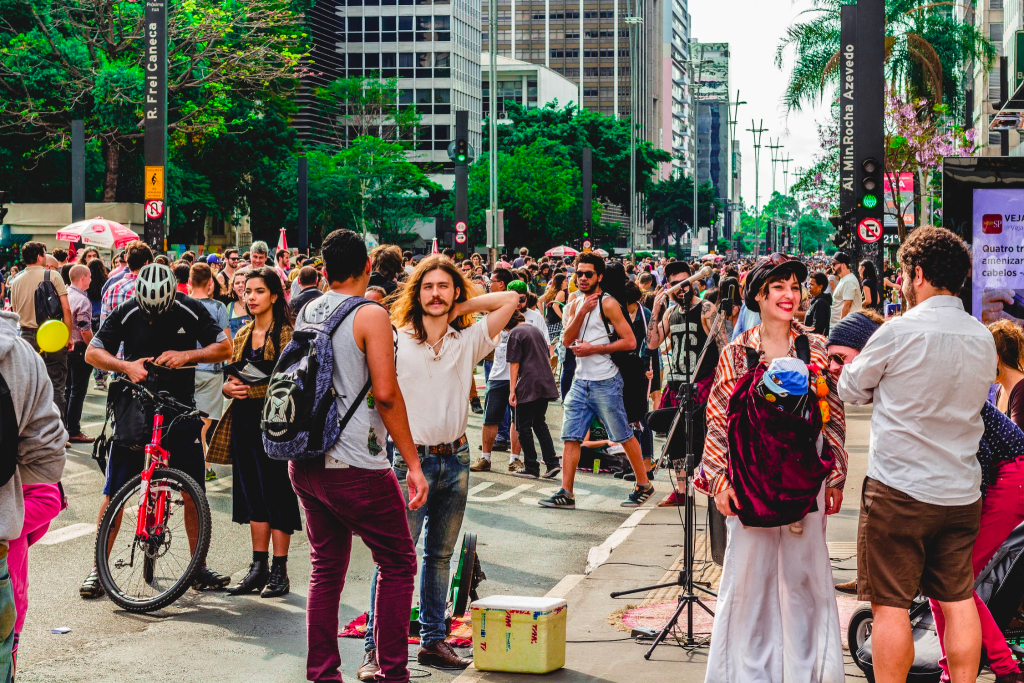
Imagine Salvador’s colourful streets, filled with the throbbing rhythms of Axé and Samba, two African-inspired music genres. In this city, music is more than just sound; it becomes a potent language that expresses history, identity, and ties to the community. During the exhilarating time of Carnival, Salvador blossoms into a dynamic, open-air stage. It’s a time when renowned groups like Olodum and Ilê Aiyê become the storytellers, their music weaving tales of Afro-Brazilian heritage, echoing their people’s struggles, triumphs, and enduring joys. These performances are more than entertainment; they are vibrant expressions of cultural pride, and historical narratives shared through the universal languages of song and dance. This rich musical tapestry transforms Salvador into a place where every note and step resonates with its inhabitants’ deep, multifaceted stories.
Capoeira: The Dance of Freedom
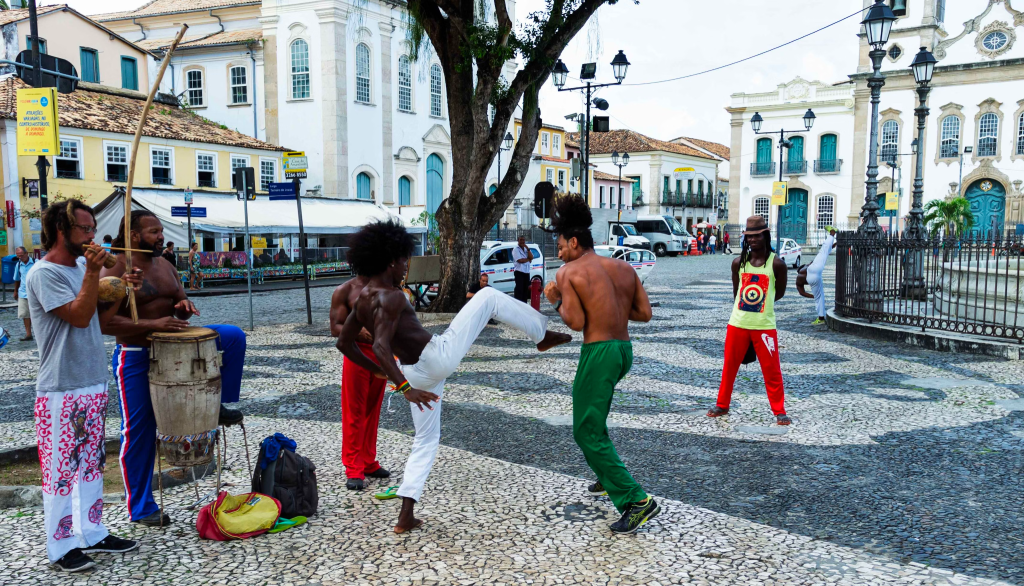
In Salvador, capoeira is more than just a martial art; it is a liberating expressive dance that poignantly embodies cultural persistence. The art form of capoeira has exquisitely developed from the severe need that enslaved Africans had for secret communication and self-defence. It now powerfully symbolises resistance and the unwavering spirit of a people. There is more to see when seeing a Capoeira roda (circle) in action than merely a feat of athletic ability. Every step and cadence conveys a narrative, illustrating resilience and power in striking detail. It’s a dynamic story that captures the Afro-Brazilian community’s history of struggle and survival and is proof of their capacity to turn injustice into a powerful and beautiful form of expression.
A Feast of Flavors
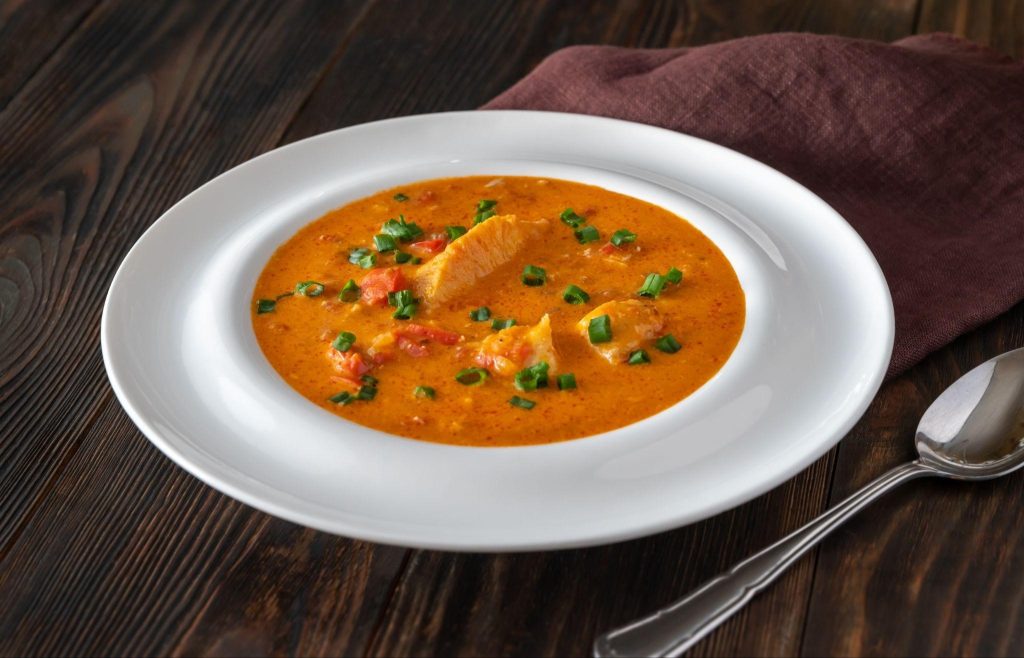
Salvador’s food scene offers a savoury, rich trip firmly rooted in African cooking customs. Every mouthful of food in this energetic metropolis has a story to tell—a tale of cultural fusion and survival. Famous foods, such as the rich and spicy street food staple acarajé or the velvety moqueca, a perfectly cooked fish stew, transcend beyond simple nourishment. They are gastronomic representations of a complex and interwoven past, with each recipe as a chapter detailing the voyage from Africa to Brazil. These delicacies highlight the extraordinary adaptability and tenacity of the Afro-Brazilian spirit in addition to pleasing the palate. They attest to the deft integration of native Brazilian flavours with traditional African ingredients and cooking methods to produce an authentic and remarkable gastronomic experience.
Salvador is a rich, lively celebration of Afro-Brazilian culture, not just a city. Its vibrant streets, hearty cuisine, upbeat music, and friendly, gregarious locals contribute to the continuous, dynamic tale of beauty, strength, and cultural diversity. This city is a living example of history and modernity, stitched together through centuries of shared experiences, with its vibrant façades and steady heartbeats.














